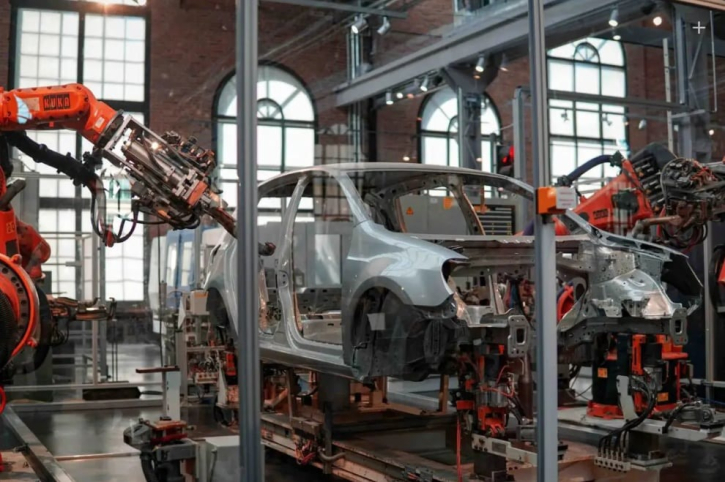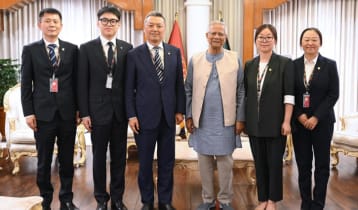China perplexed over useless car plants, dwindling ICE car sales
News Desk || risingbd.com

As China leans towards electric vehicle (EV) manufacturing its internal combustion engine (ICE) vehicles are losing sheen, resulting in more zombie car plants.
China has overplayed the West in terms of EV manufacturing but at home it has a new dilemma to tackle - how to manage the rapid decline of the auto sector devoted to internal combustion engines?
Chinese automakers have been dominant across the world in terms of sales, production and, since last year, exports as well. As per a report released by Automobility, a Shanghai consultancy, in 2023, China had peaked the sales of 30.1 million cars, which has surpassed the previous record of 28.9 million in 2017, and, yes, majority of it was due to China’s rapid shift towards EV manufacturing. Even though the numbers are impressive but it also reflects a sad reality of a staggering decline in sales of non-electric passenger vehicles at home. Moreover, there is a rapid decline in production of ICE vehicles, which is 17.7 million cars with internal combustion engines for the local market, a 37 percent fall from 28.3million in 2017.
The local ICE automakers now feel threatened by the foreign car brands operating in China. There is a mini collapse of legacy carmakers working in internal combustion engine cars. Auto sector analysts feel that if this trend continues it will pose a serious threat to the Chinese economy in the long term.
Beijing’s leadership is aware of the ‘overproduction threat’ in auto sector that the country might face in the future. Xi Jinping had addressed this issue in December last year during Central Economic Work Conference, an annual meeting that sets economic policy for the following year and had stated that “overcapacity in some industries” was among the key “difficulties and challenges that must be tackled to achieve further economic recovery”.
But Xi’s reference to the issue is still not backed by a concrete plan. Some of the car factories in China have started to focus on EVs and its exports, but, many others are already in surplus of ICE Automobiles, resulting in hundreds of zombie factories in last few years.
Keyu Jin, an associate professor at the London School of Economics and author of The New China Playbook, has pointed at how Chinese economic planners must combat a “classic transition problem” of labour reallocation as the Beijing shifts from traditional manufacturing towards new green vehicles. Jin further added that government officials have started expanding the quantity and the quality of vocational schools to help match labour skills to jobs. But a key “barrier” to China’s reallocation of labour resources lies in the country’s ‘Hukou Household Registration System’, Jin added. This core institution constrains the migrant population of almost 400 million and a proper system must be put in place to cater their needs when they migrate to other cities in search of jobs.
Data group CEIC reports that while China is aggressively marketing EV manufacturing the decline in traditional ICE car manufacturing has let to unemployment. The number of people working in auto manufacturing in China had reached close to 5 million in 2018 and has fallen by 500,000 workers since then.
Albert Park, chief economist with the Asian Development Bank, said the bank had forecast that the number of jobs created in new green industries Asia-wide would not be able to compensate for job losses linked to fossil fuels industries. But he said that in China the employment data is still not clear because the economy is already suffering owing to stock market woes and decline in property sector. “The adjustment issues are pretty substantial,” he said.
Car factories are closing in China due to dwindling sales. Data from China Labour Bulletin, a Hong Kong based NGO, showed that over 60 protests had been organised by auto workers over the past five years, clearly indicative of dissatisfaction among the workers.
Abbey Heffer, a China labour and governance expert at the University of Tübingen in Germany, said government officials in some areas in China had to deal with factory closures and sudden, large-scale unemployment, resulting in a lot of chaos. But the risk of labour disputes in the auto sector could “escalate” and draw the attention of Beijing leadership.
NH/Mukul




















